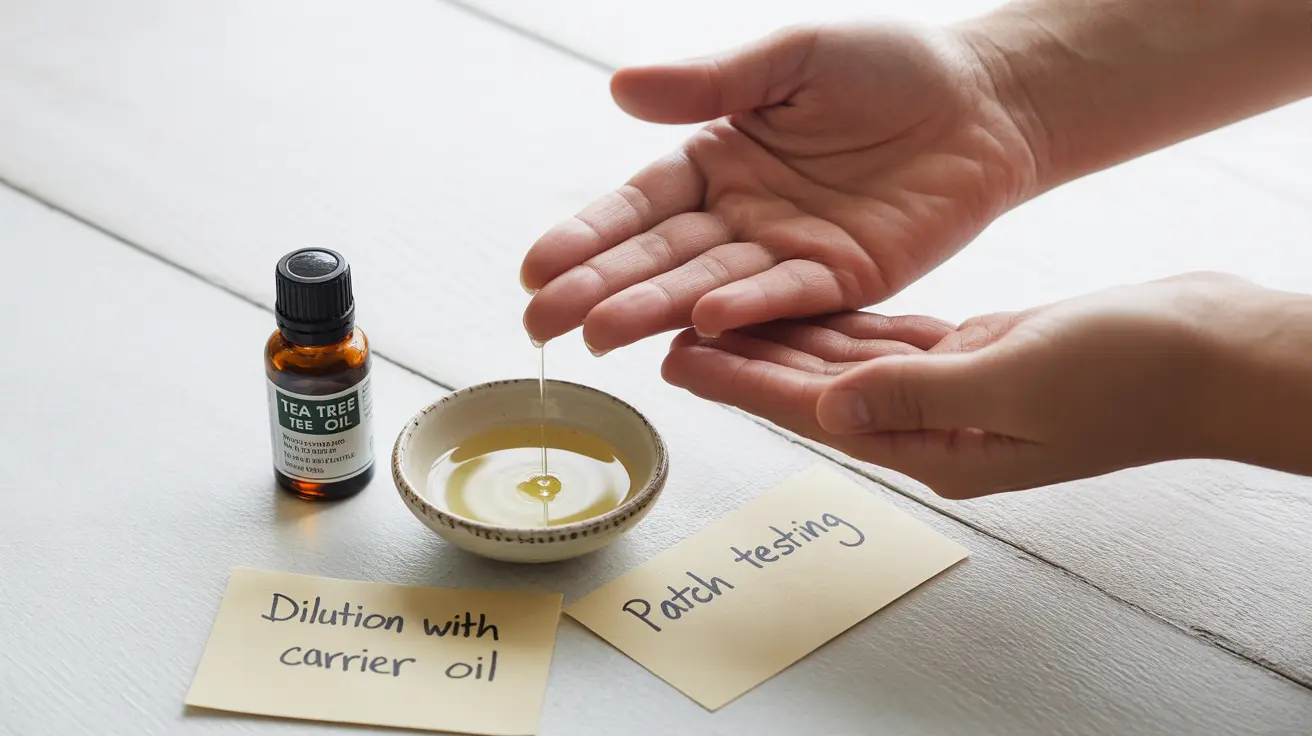Tea tree oil, derived from the leaves of the Melaleuca alternifolia tree native to Australia, has gained widespread recognition for its powerful antimicrobial and anti-inflammatory properties. This versatile essential oil has become a popular natural remedy for various skin conditions and hair care concerns, though it requires careful and proper use to ensure safety and effectiveness.
Understanding how to use tea tree oil correctly and being aware of its potential risks is crucial for anyone considering this natural treatment option. Let's explore the various applications, benefits, and important safety considerations of tea tree oil.
Common Uses and Benefits for Skin Conditions
Tea tree oil has proven effective in treating several skin-related issues due to its natural antimicrobial properties. Common applications include:
- Acne treatment
- Minor cuts and scrapes
- Athlete's foot
- Nail fungus
- Minor skin infections
- Insect bites
The oil's natural compounds work to fight bacteria and reduce inflammation, making it particularly effective for acne-prone skin when used properly. Its antifungal properties also make it valuable for treating various fungal infections.
Safe Application Methods
Proper dilution and application of tea tree oil is essential for safe use:
- Always dilute with a carrier oil (such as coconut or jojoba oil)
- Use a 1-2% dilution for facial applications (1-2 drops per teaspoon of carrier oil)
- Perform a patch test before full application
- Apply only to clean, dry skin
- Store in a dark, cool place to maintain potency
Never apply undiluted tea tree oil directly to the skin, as this can cause irritation or allergic reactions. For facial applications, extra caution and proper dilution are particularly important.
Hair and Scalp Treatment
Tea tree oil can be an effective solution for various scalp conditions:
- Add a few drops to regular shampoo
- Mix with carrier oil for scalp treatments
- Use in anti-dandruff hair care routines
- Apply diluted solution to treat head lice
When using tea tree oil for scalp care, ensure even distribution and avoid contact with eyes. Regular use can help maintain a healthy scalp and reduce dandruff occurrence.
Safety Considerations and Risks
While tea tree oil offers many benefits, it's important to be aware of potential risks:
- Never ingest tea tree oil
- Keep away from children and pets
- Avoid contact with eyes and mucous membranes
- Store properly to prevent oxidation
- Discontinue use if irritation occurs
Some people may experience sensitivity or allergic reactions even with proper dilution. Always monitor your skin's response when first using tea tree oil.
Frequently Asked Questions
What are the main skin conditions that tea tree oil can effectively treat?
Tea tree oil effectively treats acne, athlete's foot, minor cuts and scrapes, nail fungus, and insect bites. Its antimicrobial and anti-inflammatory properties make it particularly useful for these conditions when properly diluted and applied.
How should tea tree oil be safely applied to avoid skin irritation or allergic reactions?
Always dilute tea tree oil with a carrier oil using a 1-2% dilution ratio. Perform a patch test before full application, and never apply it undiluted. Use on clean, dry skin and discontinue if irritation occurs.
Can tea tree oil be used to treat dandruff and improve scalp health?
Yes, tea tree oil can effectively treat dandruff and improve scalp health. Add a few drops to your regular shampoo or create a diluted scalp treatment with a carrier oil. Regular use can help reduce dandruff and promote a healthy scalp.
What are the potential side effects and risks of using tea tree oil topically and internally?
Potential side effects include skin irritation, allergic reactions, and redness. When used topically, proper dilution is essential. Internal use is strictly forbidden as it can cause serious health complications including confusion, rash, and coma.
Why is it dangerous to swallow tea tree oil, and what should I do if ingestion occurs?
Tea tree oil is toxic when swallowed and can cause severe symptoms including confusion, drowsiness, rash, coma, and weakness. If ingestion occurs, seek immediate medical attention or contact poison control. Never attempt to induce vomiting unless directed by medical professionals.




